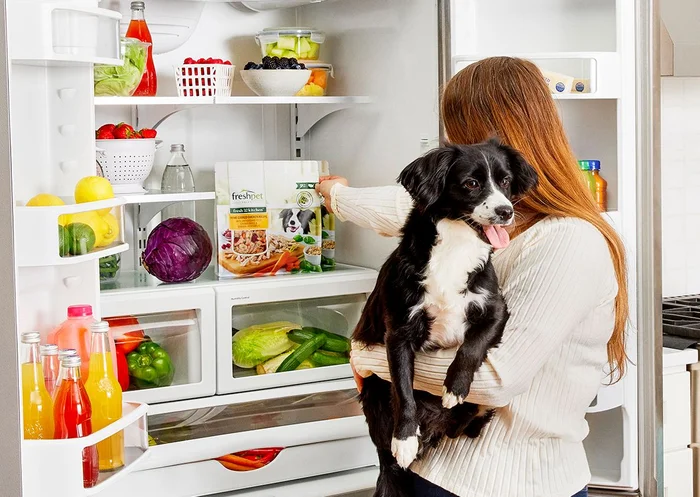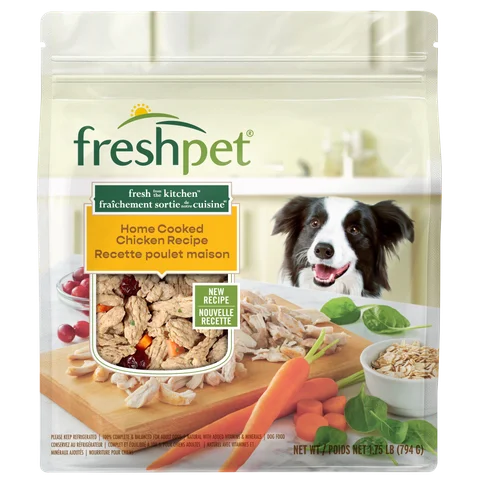
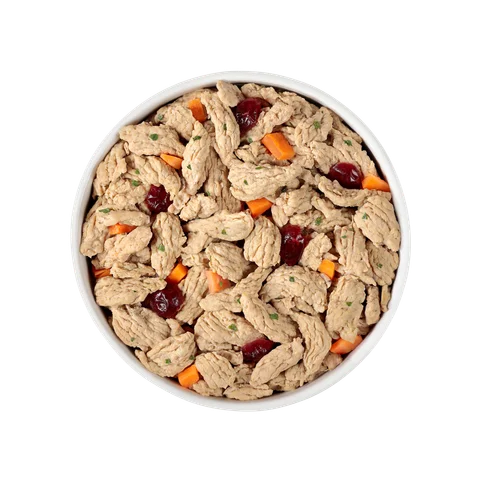
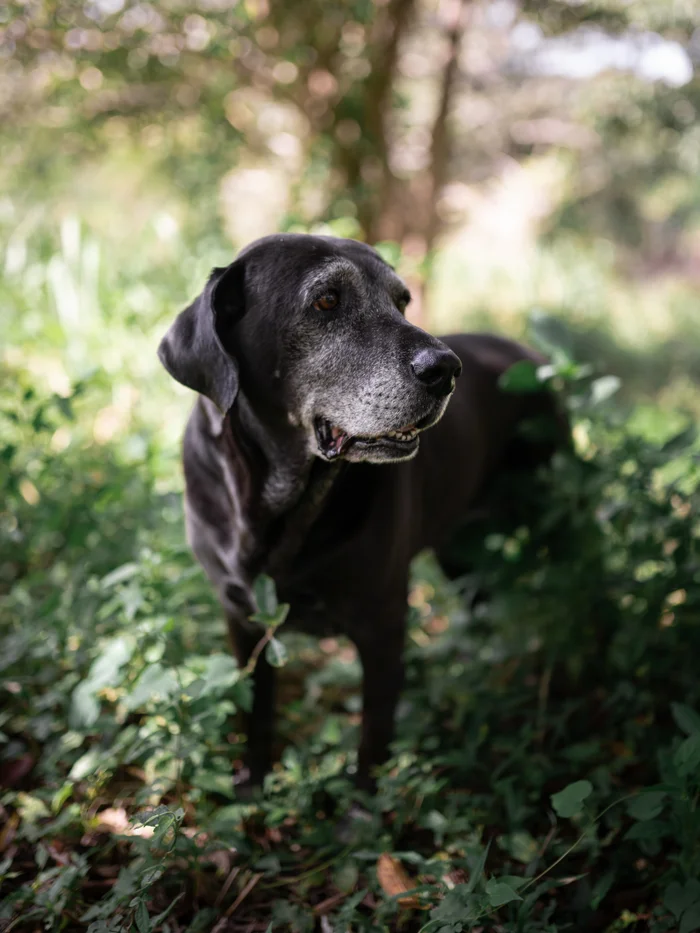
What Should I Feed My Older Dog With Sensitive Teeth?
written by Tori Holmes
As dogs age, they often develop dental issues like gum disease, tooth decay, or loose teeth, which can make eating painful. If your senior dog has been turning away from their food or eating more slowly, dental discomfort could be the reason. Fortunately, there are ways to adjust their diet to keep them nourished and happy.
Older dogs are prone to dental diseases – studies by the American Veterinary Dental College (AVDC) report that over 80% of dogs show signs of periodontal disease by just three years old, and it worsens with age. Signs of dental discomfort include:
● Dropping food while eating
● Chewing on one side of the mouth
● Bad breath or excessive drooling
● Weight loss due to reduced eating
Hard kibble or large treats can be difficult for a senior dog with sore gums or missing teeth. To make mealtime more enjoyable again, it’s recommended to switch to softer, more palatable foods.
For senior dogs with dental issues, soft, moist foods are ideal because they require minimal chewing while still providing essential nutrients. These foods are not only easier to digest but also more palatable for dogs who may have lost interest in eating due to mouth pain. When selecting a new mealtime option for your pup, look for high-protein, nutrient-dense formulas, such as Freshpet.
Freshpet’s refrigerated food for dogs takes the benefits of soft foods a step further by offering recipes that are minimally processed and made with real, whole-food ingredients including meat, fruits, and vegetables. Unlike dry kibble, which can be tough on sensitive teeth and gums, Freshpet’s fresh recipes are gently steam cooked so they’re easy to chew and swallow. Additionally, because these recipes are free from artificial preservatives and packed with moisture, they help support hydration, which is especially important for aging dogs.
The combination of tender texture, high-quality ingredients, and enhanced flavor makes Freshpet a top choice for pet parents looking to nourish their senior dogs without compromising dental comfort.
As your dog ages, dental problems can make mealtime challenging, but the right senior dog food can help keep them nourished and comfortable.
● Healthy Aging Chicken and Salmon with Cranberries, Sweet Potatoes, and Carrots: Formulated by veterinary nutritionists, this non-GMO Chicken & Salmon recipe with cranberries, sweet potatoes, and carrots provides optimal protein, fat, and joint-supporting glucosamine and omega-3s to promote healthy aging, muscle maintenance, and joint health in dogs.
● Freshpet® Multi-Protein Complete Meal with Chicken, Beef, Egg, and Salmon: This protein-rich recipe features farm-raised chicken, beef, egg, and salmon with wholesome veggies like sweet potatoes and green beans, gently steam-cooked to lock in nutrients. Packed with omega-3 and -6 fatty acids, it supports healthy skin, a shiny coat, and complete nutrition for your dog.
For a deeper dive, see our guide to the best food for senior dogs.
Just because your dog’s teeth look fine doesn’t mean they’re healthy – this is because dogs’ teeth are like icebergs. Only the crown shows above the gums, while the root – where serious issues like infections or bone loss occur – is hidden below. A tooth can appear healthy while being severely diseased underneath. Since dental disease often hides where you can’t see it, regular vet care is crucial:
● Annual dental X-rays are a must: These X-rays allow vets to detect hidden problems like abscesses, fractures, or root damage before they cause pain or tooth loss.
● Brushing is ideal, but consistency is key: While daily brushing is the gold standard, even 2-3 times a week helps reduce plaque buildup. If your dog resists, try dental wipes, water additives, or vet-approved chews as supplemental care.
Caring for an older dog with sensitive teeth requires patience and the right nutrition. Dental issues can turn mealtime into a painful experience, but by choosing softer, high-quality foods like Freshpet’s gently cooked recipes, you can ensure your senior pup gets the nourishment they need without discomfort.

fun with pets
Join us as we cover the best pet-related tech.
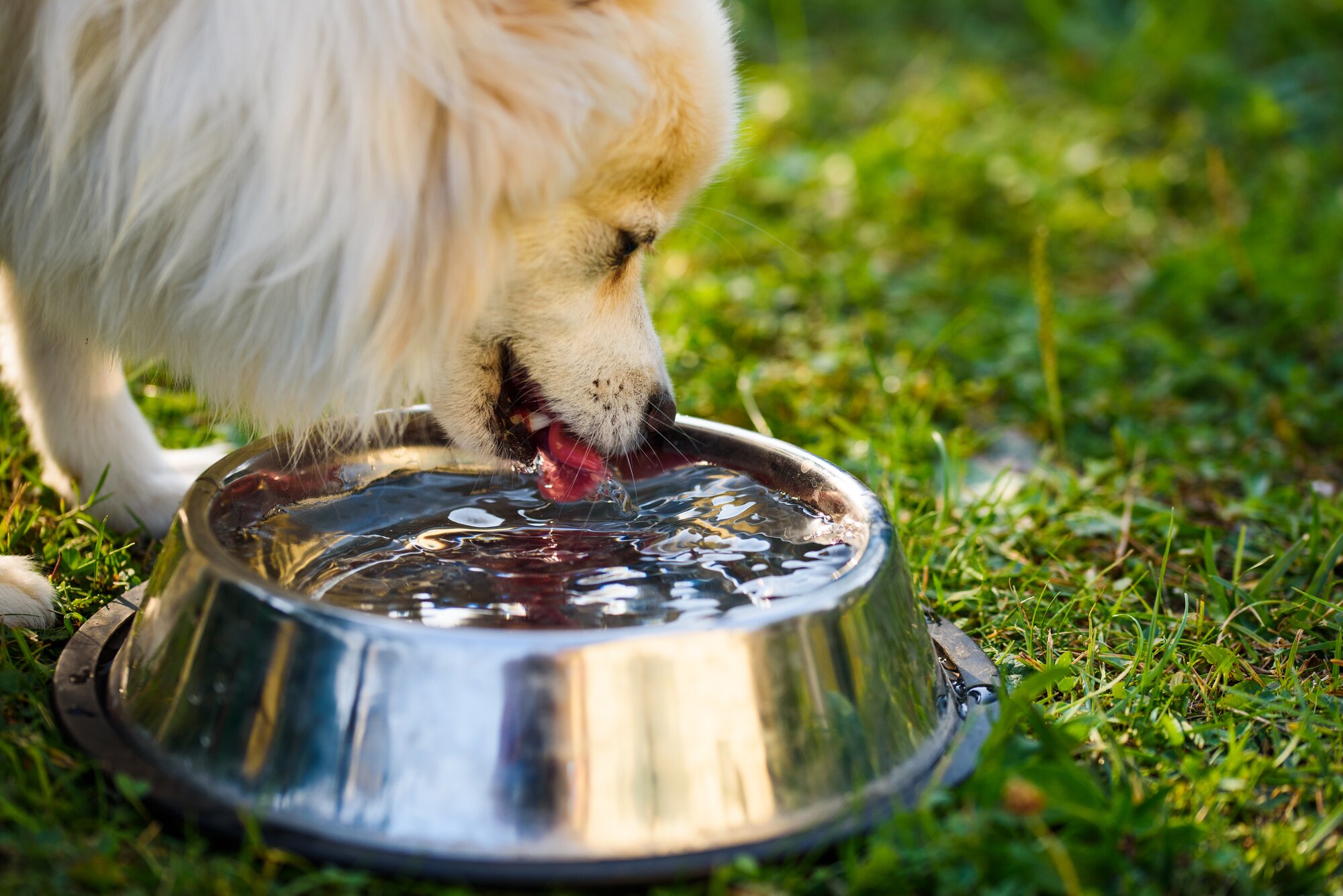
pet wellness
Find out how to keep your dog properly hydrated, recognize dehydration symptoms, and support overall wellness with practical hydration tips from Freshpet.
